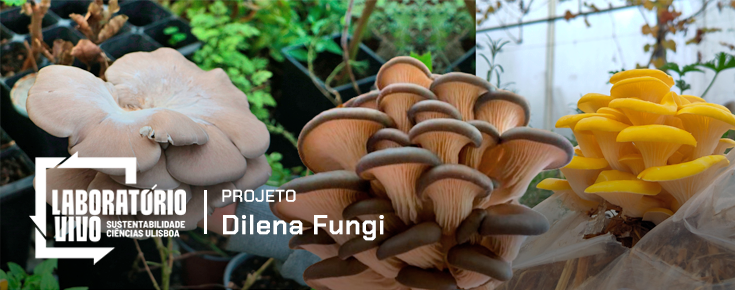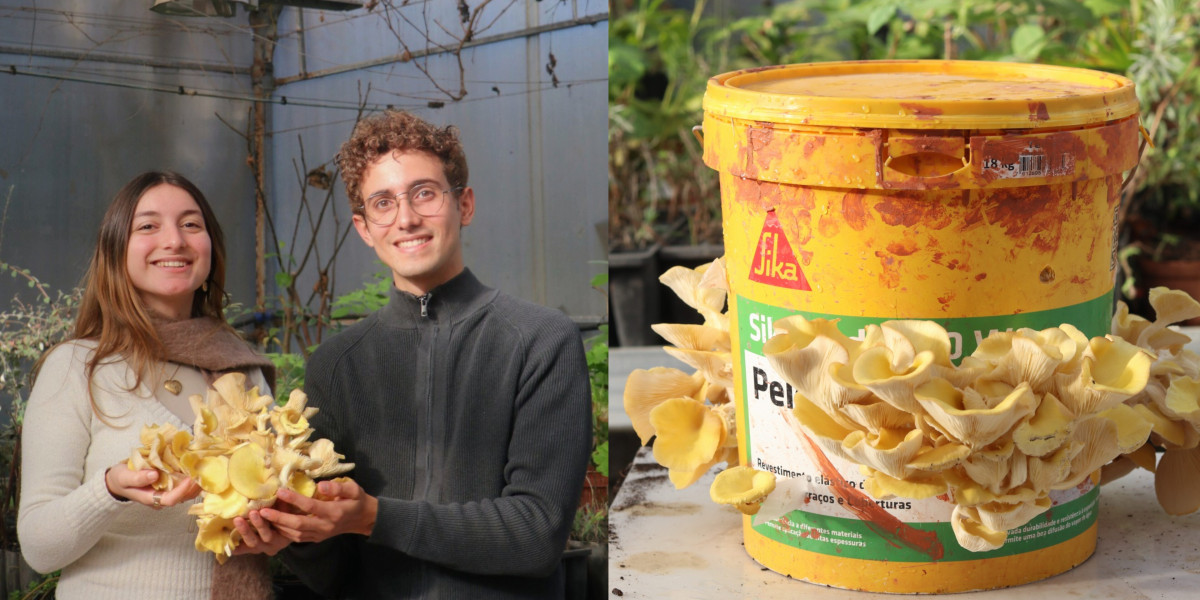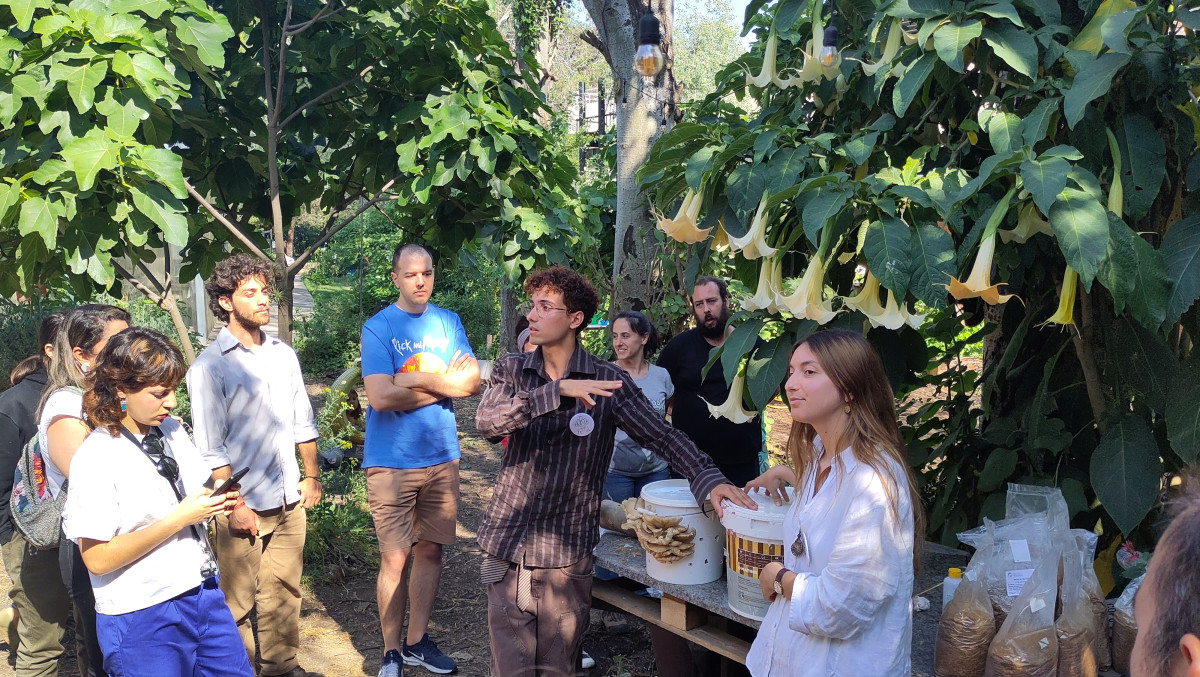


Madalena Mariano e Diogo Ribeiro, 3rd year Biology bachelor students as HortaFCUL’s guardians, they regularly visit PermaLab (Permaculture Living Lab) and one day came across an element missing in the food production of this area: mushrooms.

Together they created the Dilena Fungi mushroom production project, with the purpose of adding mushrooms to the foods produced at PermaLab. They began in May 2023 preparing and planning the 4 experimental stations with production of Gray Oyster, Yellow Oyster, King Oyster, Shiitake, Shimeji and Lion's Mane. For learning and their own research, but also to highlight fungi and encourage the FCUL community to use the space with living examples in teaching this area of biology.
Closing cycles and reducing consumption
Right from the start, they incorporated coffee bags and grounds from FCUL coffee shops into their production, using various methods until they found the most sustainable ones that allowed for greater reuse of resources and reduced waste. Methods such as using reusable buckets instead of plastic bags, which are very common in the mushroom industry. In addition to closing cycles by upcycling these resources, they also use compost produced at HortaFCUL as a supplement, as well as straw from agricultural waste and sawdust (a carpentry by-product) in the composition of the substrates that feed the mushrooms.
From the lab to the field (and from the field to the plate)
To start growing mushrooms, they bought mycelium, the stage of the fungi's life cycle that is used to inoculate them, a white network that is normally found underground. Now they produce their own mycelium from fresh mushrooms. To better understand this laboratory process, they had help from Professor Margarida Souto Barata of Microbial Biology and Biotechnology at FCUL.
They use different substrates, media and stations in areas with differences in humidity, light and temperature. The “living laboratory” is used to the maximum and strategically. Simple tools such as switching between greenhouse and outdoor conditions depending on the species and at different stages of its life cycle allow production to be optimized. They collect data such as the amount of biomass produced, colonization speed and productivity. One bucket for example can produce 1-2kg of fresh mushrooms in the case of Pleurotus ostreatus (grey oyster mushroom).
Sharing the knowlege
In 2023, they were challenged by other HortaFCUL guardians to organize a mushroom production workshop at FCUL, which sold out and received great feedback. After the experience, they were contacted to share their knowledge both nationally and internationally. In 2024, they held lectures and workshops in London at the Emmetts Garden Fungi Festival, at the Beja Silarca Mushroom Festival, at the Lisbon City Council's Open Gardens Festival and at FCUL. During the activities developed last year, they had more than a hundred participants. The project also participated in the practical classes of the Ecological Sustainability subject within the scope of the Master's Degree in Ecology and Environmental Management at FCUL.
The future?
They want to continue learning through practical experiences and strengthen the project's impact and involvement in teaching biology and sustainability at FCUL. Such as engaging with other communities, cultivating more species (with different nutritional and functional benefits), and improving both laboratory and cultivation techniques. Furthermore, Diogo and Madalena believe that their project has the potential to create synergies between their academic and professional research paths due to the important role of fungi in ecology, conservation and nutrition.
How to find out more?
The project has the following social media and it is very likely to find Diogo and Madalena at HortaFCUL’s open days, always happy to show the Dilena Fungi stations and explain more about the project.
- Instagram: @dilenafungi
- LinkedIn: Dilena Fungi
- Email: dilenafungi@gmail.com
References about the project:
Project Coordinators and members: Diogo Ribeiro and Madalena Mariano
For more information, contact sustentabilidade@ciencias.ulisboa.pt.

